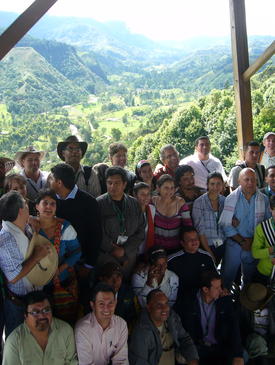Lessons Learned from the Mainstreaming Biodiversity into Sustainable Cattle Ranching Project
Summary
The Mainstreaming Biodiversity into Sustainable Cattle Ranching (MBSCR) Project is the most ambitious initiative of its kind that has taken place in Colombia or other Latin American countries. Between 2012 and 2019, project activities covered 60,000 hectares of cattle grazing lands located in 89 municipalities and five regions of the country and benefited more than 4,500 farmers with actions related to the adoption of silvopastoral systems and ecological restoration. In 2011, ELTI provided two field courses to part of the project's technical team: Restoration of Connectivity Corridors in Cattle Ranching Landscapes (May 21-26) and Strategies for the Sustainability of Connectivity Corridors (October 8-14).
This workshop will bring together a group of ELTI alumni who work with CIPAV as technical assistants, researchers and professionals in the MBSCR and other projects that integrate sustainable ranching and ecological restoration. In this collective exercise, participants and trainers will analyze the lessons learned in delivering technical assistance, incentives and training to cattle farmers in different agroecological, cultural and socioeconomic contexts. The results of this workshop will be useful to design new projects aimed at upscaling silvopastoral systems and promoting landscape-scale sustainable ranching in Latin America.
Content
This workshop will combine individual and group presentations of course participants with lectures, a field exercise at El Hatico Nature Reserve and a writing exercise. Group discussions and presentations in the plenary session will focus on five types of lessons learned throughout the MBSCR and other sustainable ranching and restoration projects:
- Technical learning
- Socio-economic aspects
- Cultural issues
- Interinstitutional alliances
- Technical assistance, incentives and other tools


